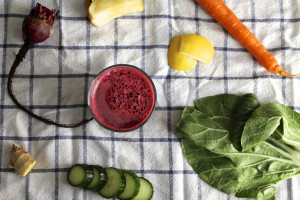When the benefits of sauna use are discussed, one word that comes up often is detoxification, but what exactly does that mean? Why should we detoxify? What happens if we don't? What are the different ways to do it? We've done the research for you, and if you continue reading, we'll explain it all to you.
What is Detoxification?
Detoxification refers specifically to the cleaning of the blood by removing impurities in the liver. The liver is the organ that processes toxins for elimination from the body. This processing also occurs to some degree in the kidneys, intestines, lungs, lymph nodes, and skin, but the liver is the real star. When the processing is compromised in some way--such as through illness or poor diet--the toxins aren't properly filtered and the entire body is affected.
Why Should People Detoxify?
Toxins in the body are associated with a variety of maladies such as chronic fatigue syndrome, fibromyalgia, and multiple chemical sensitivity. In fact, the medical category Clinical Ecology exclusively deals with the ways environmental toxins affect health.
The body can handle only so many toxins, and it was designed for naturally occurring toxins, not man-made ones that bombard our world today. Therefore, our body is often faced with toxins it doesn't know how to process. These toxins can build up to harmful levels or be converted into substances that interfere with metabolism. This can result in cancers or birth defects.
It is recommended that you detoxify if you are experiencing any of the following:
- low-grade infections
- irritated skin
- unexplained fatigue
- chronic bad breath
- body odor
- depression
- poor memory
- mental confusion
- bloating
- allergies
- poor skin
- headaches
- poor concentration
- excessive mucus
- weight gain
- gas
- menstrual problems
- puffy eyes or bags under the eyes
- poor digestion
- constipation
What Will Detoxifying Do For Me?
Detoxifying can assist the body's natural cleansing process by:
- Giving the organs a rest
- Enhancing blood sugar control
- Refueling the body with nutrients
- Assisting in weight loss
- Improving blood circulation
- Promoting toxin elimination through the intestines, kidneys and skin
How Do I Detoxify?
There are many ways to detoxify the body. Some methods are common across many cultures and are very old. Native Americans used sweat lodges, Christians would fast, and people in Russia and Finland would spend time in saunas.
Some common contemporary detoxification methods are:
- Fasting, calorie-restriction, or cleanses
- Medical detoxification--especially beneficial for highly toxic individuals. This is a supervised cleansing process involving calorie restriction, consuming specific nutrients, and taking supplements.
- Mental, spiritual, and emotional cleanses. Mental and emotional toxicity and stress are very often major contributors to overall body toxicity, especially as they contribute to poor decision making and poor lifestyle choices that often lead to exposure to environmental toxins such as drugs and alcohol. Quiet contemplation, meditation, relaxing, reading, listening to music, and doing yoga or qigong are all great ways to cleanse yourself of mental and emotional toxins.
- Eliminate stress. As mentioned above, stress is terrible for your body. It can severely interrupt the body's natural cleansing processes. Try eliminating as much stress from your life as you can.
- Exercise. Regular physical activity lowers stress, encourages healthy mood and energy levels, and assists with the excretion of toxins through sweat.
- Drink plenty of water. The average person needs about 2 liters of water a day. Drink more if exercising regularly or using the sauna. Unsweetened tea is also a good option.
- Eat fruits and vegetables that assist the body with detoxification. Good choices include dandelion greens, burdock root, artichokes, garlic, onions, and scallions. Less good but still beneficial choices include spinach, kale, rapini, broccoli, chard, avocado, cabbage, arugula, tomato, eggplant, and zucchini.
- Eat lean protein. Protein is a necessary component in detoxification, as blood proteins are built from amino acids. Choose proteins such as free-range grass-fed beef, organic chicken, or wild-caught fish. These will help you maintain amino acid balance. Other sources of lean protein include whey and nuts.
- Use herbs generously. Herbs such as turmeric, milk thistle, burdock, celandine, spirulina, barley grass, wheat grass, and dandelion are all good for your body.
- Salt scrubs, salt or mineral baths, or massages. These treatments can work toxins out of muscles and skin, and help promote relaxation.
- Saunas or sweat lodges. Perspiration is a natural detoxification method, and it's extremely effective. Sweating to detoxify is most effective when done regularly. Twice a week is good, but for best results you should sweat mildly every day.
- Eat plenty of fiber, such as brown rice and fibrous fruits and vegetables.
- Take vitamin C, which helps the liver drive out toxins.
- Breathe deeply. This allows oxygen to circulate more completely throughout your system.
- Hydrotherapy--Take a very hot shower for 5 minutes, letting the water run on your back. Follow with cold water for 30 seconds. Repeat 3 times, then climb into bed for half an hour.
- Dry brush your skin to remove toxins from your pores. You can buy special brushes to do this at natural products stores.
- Go to bed around 10pm. Between 10pm and 2am is when your body does most of its cell repair and cell rejuvenation, eliminating toxins from inside the cells.
- Breathe through your nose, not your mouth. Your nose warms, filters, and moistens air to prepare it for your lungs. If you breathe through your mouth, the air doesn't get filtered and more pollutants enter your body through your lungs.
However you detoxify, it's advisable to avoid extremes, fad diets, so-called miracle products and unproven technology. Good results occur when the detoxification is safe and relatively comfortable. This allows the process to be extended for a long enough period of time to be effective and repeatedly at least annually. Consider detoxifying every 6 months or even quarterly.
Detoxification is not advised for nursing mothers, children, or patients with chronic degenerative diseases, cancer, or tuberculosis. As always, talk to your doctor.
The best way to detoxify is to avoid toxins altogether. Watch out for the following toxins readily available in your everyday environment:
- health and beauty products such as cosmetics, cleaning products, detergents, gasoline, glue, and paint
- coffee, which is a heavily fumigated crop
- alcohol
- artificial sweeteners such as aspartame and nutrasweet
- dairy should be avoided while detoxing and minimized in general
- cigarettes
- non-organic produce, as they have been exposed to pesticides
What Can I Expect When Detoxifying?
While detoxifying through methods such as fasting, people often experience fatigue, joint aches, flu-like symptoms such as congestion and nasal drip, moodiness, rashes, fever, headaches, gas, and diarrhea. People with greater toxicity levels will experience more severe symptoms, and it will take longer for them to detoxify. In some people, the symptoms will mimic bacterial diseases experience before, because their bodies are excreting bacterial byproducts that initially caused the disease symptoms.
However, if you stick with the detoxification plan and detoxify regularly, the symptoms will become less severe with each session. Once the symptoms pass, you will find that you feel better overall.

















